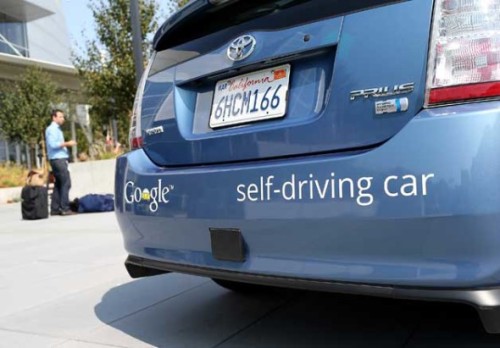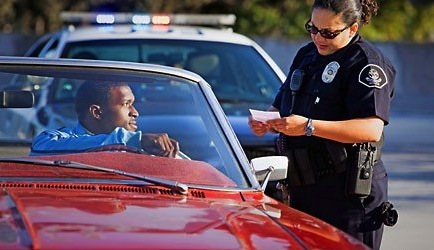by Chris Metivier

Who’s there?!
A couple of weeks ago an unusual thing happened to me. One of my neighbors knocked on my door. I haven’t lived in my current house long, and he just wanted to tell me that his lawn mowing had blown some grass clippings in my driveway and to assure me that he intended to clean it up. I certainly wasn’t worried about grass clippings in my driveway, but it was a polite way for my neighbor to introduce himself, and I was glad that he did. He’s a nice guy.
Afterward, my housemate remarked that it was strange for someone to just knock on the door. Typically when that happens it’s some sort of solicitor, and I’d just as soon pretend I’m not home as answer it. He said that he’s actually annoyed when someone knocks on the door unexpectedly. If it had been a friend, he said, we’d have known they were coming.
We considered how we came to have this attitude of preferring to avoid unannounced visitors. It occurred to us that this is the same way we feel about receiving calls from unrecognized phone numbers. I don’t know about you, but I usually ignore those calls, because again, it’s typically a solicitor. The unexpectedness of a visit or phone call implies that it’s likely to be unwanted. That small bit of information is what we’re acting on when we decide to ignore a knock on the door or a ringing phone.

Just dropping by. Remember when that used to happen?
He mentioned that when he was young, it was common for family friends to drop by unannounced. It was a normal social practice. But it doesn’t happen any more. We concluded that the ubiquity of cell phones is at the root of this change. We know now when someone is on their way over because they—knowing that I always have my phone with me and they theirs—will call (or more typically text) to let me know they’re coming. I usually don’t even need to answer my door. If I’m expecting someone, I just make sure the door is unlocked so they can just walk in.
This change in attitude toward visiting someone’s home is sort of an unexpected side-effect of cell phone technology. I wouldn’t have guessed that the portability of telephones would lead to a shift in attitude toward something that isn’t obviously related to telephones. It made me think: what other technologies might have unexpected effects on our attitudes toward common social practices?

Google Self-Driving Car.
Some days later I was driving on the highway. There was some traffic and I got to thinking, if only everyone would drive exactly the same speed, there would be no traffic. Then I thought, those Google self-driving cars could do that. In fact, those Google self-driving cars could probably do it much more safely and efficiently, with smaller gaps between cars even at high speeds. I suspect they could merge in and out of traffic with flawless precision. There would be no traffic bottlenecks at major junctions. Maybe I’m expressing more confidence than the technology merits, or maybe anyone who doesn’t is a technophobe. (There. I said it.)
Then I got to thinking about how different traveling by road would be if every car on the road was self-driving. Not only would you probably get where you’re going faster, because of the elimination of most traffic problems (like some idiot doing 55 in the fast lane), you’d also know exactly and reliably when you would arrive at your destination. No longer would “traffic” be an excuse for showing up late. And you couldn’t fudge it. If you left behind schedule, there would be no making up the time by driving extra fast. The self-driving cars would always move at the same speed. Robot cars have no sense of urgency.

Nissan Autonomous Drive Vehicle.
Furthermore, since there would be no driving extra fast, there would be no breaking the speed limit. Maybe the notion of a speed limit would become nonsensical, since the self-driving cars wouldn’t travel at some range of speeds with an upper limit, they would travel (except while merging) at exactly one speed. Probably other kinds of traffic laws would become obsolete as well.
Think about how common it is to exceed the speed limit, and think about how you feel when you suddenly notice a police cruiser on the road behind you, or on the side of the highway. Maybe you don’t do this, but I immediately feel tense, nervous, guilty. Maybe your stomach lurches a little. Maybe you reflexively take your foot off the gas. I do all those things, even if I’m driving below the posted speed limit. I feel like a criminal, who will suffer or avoid punishment, only on a whim of some guy in a uniform. (Who does he think he is?! Ugh! Cops!)

Well … rats.
Now think about how you react to seeing a police officer while you’re both on foot. You don’t feel guilty. You don’t feel nervous. You probably feel safe. You might even smile or nod. You don’t have to avert your eyes for fear he’ll memorize your shifty face so as to apprehend you later. When you’re on foot, police are there to protect you, not to persecute you. The only trouble is that this doesn’t happen all that much. The bulk of a typical (non-criminal) person’s experience with police is on the road, where we’re suspicious of them, the threat of punishment implicit in their mere presence.

It’s a beautiful evening, isn’t it?
I suspect this is a common attitude toward police. When you’re on foot, they’re your allies. When you’re behind the wheel, they are symbols of authority who are only out to enforce laws against you. My prediction is that if self-driving cars were common, people’s attitude toward law enforcement would change dramatically. Most people’s negative experience with the police are over speeding tickets. Since self-driving cars would make the very concept obsolete, the negative experiences (including anxiety) about contact with police would be eliminated (except maybe for parking tickets).
Sure, there are other reasons people might have negative attitudes toward law enforcement. But I’m willing to bet that most folks are like me. If I didn’t think that all cops were out to give me speeding tickets (because of some insidious quota program that the state will obviously deny, but I know better), I’d be likely to have a much more positive attitude toward them.
I know this isn’t really a big deal. It’s not going to change our lives in any really significant way (more than self-driving cars would already). I know attitudes toward police aren’t a serious societal problem that many people give much thought to. And I know that self-driving cars are technologically possible now, but economically a long way off. This is just an exercise in thinking about the ways technology might change our lives in ways we don’t expect at first. It’s an exercise about excitement for the ways in which our lives might be different, and better, due to minor, indirect effects of new technologies. Sure, I’m being optimistic, and sure, you can be be a future-dreading techno-pessimist if you want. But the future will arrive in spite of pessimists, and there will be myriad benefits for those of us who embrace it.

Wait … who’s Driving this thing?!










